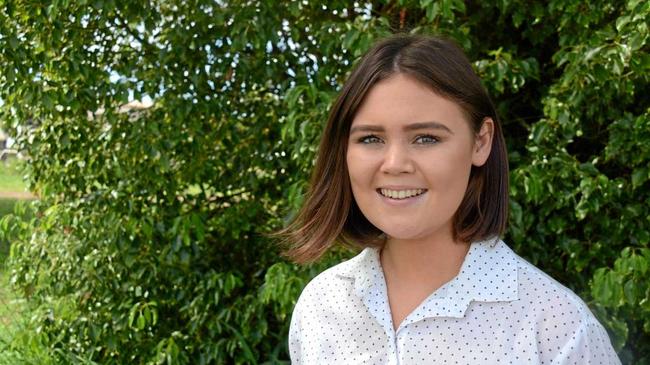What 'victim blaming' really means
IS IT still victim blaming if you explain that you're not trying or wanting to blame the victims.

South Burnett
Don't miss out on the headlines from South Burnett. Followed categories will be added to My News.
IS IT still victim blaming if you explain that you're not trying or wanting to blame the victims, before putting the blame onto the victims?
Now I get it, I crossed the Haly St zebra pedestrian crossing and was hit by a car. My actions led to an accident, as many believe.
I'm not the only one though.
Sharon Jones from our office was also hit on this crossing last week. She was approximately the same distance onto the crossing (halfway) as I was.
Fortunately, the car who hit her was only travelling 10 to 20km/h. Fortunately, Sharon is OK and well.
Yet again we were both very fortunate not to have suffered more serious injuries from these accidents.
In the week following my accident (which was Friday April 13) The South Burnett Times spoke with police, council members, and Nanango MP Deb Frecklington about ways to make the crossing safe.
Suggestions were: more signs, raising the road with a speed bump, reducing the speed limit, creating a roundabout, moving the crossing to the lights, and putting lights at the crossing.
However, in one interview it was quoted "I don't have any issue with the sitting of that particular crossing."
"Again I'm not wanting to blame the victims but people have to be aware of their environment, the hazards around them and take some responsibility."
Again, I question whether it is still victim blaming if you explain that you're actually not wanting to blame the victims; before putting the blame onto the victims.
I don't understand why people want to talk about this and place blame outside of what happens legally.
Because legally, I am not to blame, and I had complete right of way. I committed no crimes.
The same can be said for Sharon.
This applies to every pedestrian hit on a pedestrian crossing.
Even so, I have been regularly reminded I need to take responsibility for my actions.
Apparently, I have failed to do so.
Now I wasn't even sure what was meant by this when I first read these words. I did a little research.
And I'm still unsure as to how this phrase fits my circumstances.
At the time this was quoted and published (April 18) I hadn't done or said anything to indicate what responsibility I felt.
I'm not sure what I could have said or done to make this person think I had not taken responsibility for my actions.
At the time this was said I was still as good as knocked out. I was struggling with post-concussion and traumatic head injury symptoms.
I hadn't even processed what had fully happened. I had no recollection of the day of the accident or of my time in hospital.
Today and every day since I had recovered enough to process these thoughts; I have blamed myself for the accident.
This is something I am working through with help from medical professionals.
Medical professionals who constantly remind me it was simply an accident. That I was a victim. And, that I was approximately halfway across the pedestrian crossing where I had complete right of way before I was hit.
Being a victim is not a mindset. It is not an identity or a perspective. You can't just decide not to be a victim.
You are a victim if you were harmed, injured, or killed as a result of a crime, accident, illness, or another event you did not cause.
So no. I am not 'playing the victim'. Neither is Sharon. Or anything one else who was a victim of a crime and accident on the Haly Street Crossing.
Nobody who is a victim of a crime, accident, illness, or another event caused by someone else is 'playing the victim.'
This is because being a victim is passive. It is out of the victims control.
The accident was out of my control.
The words I speak, the blame I place, and the way I react is not out of my control.
I do not know what I could have done differently so that someone didn't feel or publicly say I needed to take responsibility for my actions.
I think the truth is it doesn't matter how I felt or what I said. It wouldn't have changed whether someone said something kind or not.
Because sometimes people are not kind.
I believe I have 'taken responsibility' for my actions. Or at the very least I haven't done or said anything to indicate otherwise.
I believe taking responsibility is not something I should even be focussing on through my recovery. Or at least not in the way that others would be aware of and approved of.
To recover I'm focussing on my physical and mental health, on my career, my identity, my family, and my relationships.
I'm working to move forwards from what happened to me four months ago.
I'm recovering.


